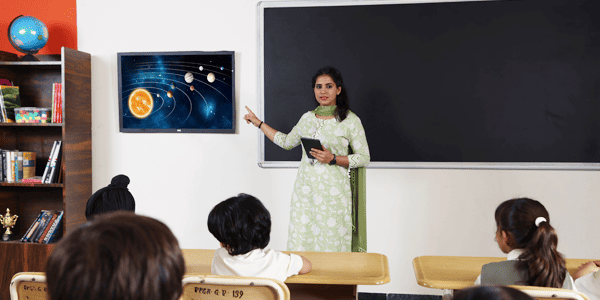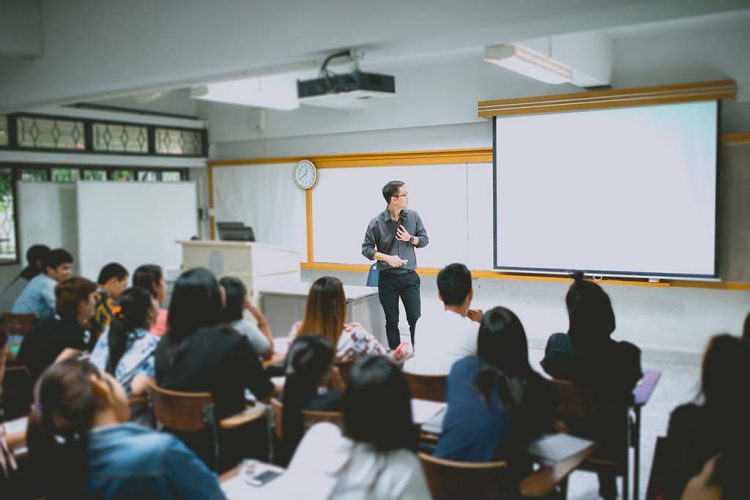Comprehensive Primary Science Tuition Singapore for Primary School Students
Comprehensive Primary Science Tuition Singapore for Primary School Students
Blog Article
Discover the Important Advantages of Recognizing Key Science for Young Students
The importance of main scientific research education for young learners expands much past simple expertise procurement; it serves as a basic column in establishing important abilities such as critical thinking, analytical, and creative thinking. Engaging with clinical principles via interactive and inquiry-based activities not only cultivates interest however likewise lays the foundation for resistant, confident students. As we discover these advantages better, it comes to be clear that the implications for future scholastic and individual development are extensive. Nonetheless, what details approaches can teachers utilize to take full advantage of these advantages?
Enhancing Important Believing Skills
Promoting critical assuming abilities in young learners is crucial for their cognitive growth and future academic success. Essential thinking makes it possible for kids to analyze details, assess proof, and make informed decisions, which are crucial abilities in today's information-rich society. By engaging in clinical query, young students can improve these abilities as they discover principles with reasoning, observation, and trial and error.
In main scientific research education, instructors can help with important reasoning by encouraging trainees to ask inquiries, formulate hypotheses, and carry out experiments. This hands-on strategy allows kids to practice analytical and develop logical reasoning abilities. When students check out the properties of materials or the concepts of activity, they find out to examine their searchings for seriously and attract final thoughts based on proof.
Furthermore, conversations and collaborative tasks can advertise critical reasoning by giving opportunities for learners to verbalize their thoughts, difficulty assumptions, and consider diverse point of views. By producing a helpful environment that values inquiry and representation, teachers can nurture vital thinking skills that encourage young students to come to be lifelong students and independent thinkers. Inevitably, improving these skills lays a robust foundation for their future scholastic endeavors and individual development.
Fostering Curiosity and Exploration

Primary scientific research education and learning offers an organized atmosphere where young students can explore numerous phenomena with hands-on experiments and monitorings. By enabling them to connect with materials and participate in inquiry-based learning, teachers create chances for youngsters to formulate hypotheses, examine their ideas, and reason. Such experiences nurture a sense of marvel and excitement about science.

Structure Self-confidence in Trouble Solving
Structure self-confidence in analytic is a crucial component of primary science education that equips young learners to approach challenges with durability and imagination - primary science tuition Singapore. They establish vital skills in critical reasoning and analysis when children are urged to engage with clinical ideas through hands-on tasks and inquiry-based knowing. This procedure not just enhances their understanding of scientific principles yet also cultivates a sense of possession over their discovering
To develop confidence, instructors ought to create an encouraging environment where blunders are considered as chances for development rather than failings. This encourages trainees to take risks and check out various remedies to problems. By supplying scaffolding and assistance, educators can assist pupils navigate intricate tasks, slowly increasing their self-reliance in analytic situations.
Additionally, collective discovering experiences, such as team projects or experiments, can further enhance trainees' confidence as they learn to express their thoughts and pay attention to others' viewpoints. These communications support social skills and reinforce the idea that problem-solving is commonly a cumulative venture. Eventually, cultivating confidence in analytic prepares young students for future scholastic difficulties and equips them with the tools necessary for long-lasting discovering.
Motivating Creativity and Innovation
In the world of main science education, urging imagination and advancement is vital for growing a vibrant discovering atmosphere. By promoting a culture where young students can discover ideas and experiment freely, instructors help students create vital thinking abilities and an enthusiasm for discovery. Creativity in scientific research motivates children to ask inquiries, develop theories, and participate in hands-on tasks that promote their imagination.
Integrating flexible jobs and inquiry-based learning right into the educational program enables students to share their one-of-a-kind viewpoints and solutions. As an example, when tasked with fixing a problem pertaining to their setting, pupils can conceptualize numerous techniques, leading to innovative results that display their originality. This not just grows their understanding of scientific concepts however likewise infuses a feeling of possession over their understanding process.
Additionally, innovative scientific research education and learning supports collaboration among peers, as students commonly share concepts link and improve each other's understandings - primary science tuition Singapore. This collaborative spirit promotes not only development however likewise necessary social abilities. Hence, by focusing on creative thinking and technology in key scientific research education and learning, we empower young students to believe critically, welcome challenges, and imagine opportunities, laying a solid foundation for long-lasting learning and expedition
Planning For Future Understanding Difficulties
Young students' capability to browse future discovering difficulties rests on a solid structure in main science education and learning. This foundational understanding equips pupils with essential assuming skills and a systematic strategy to analytical, necessary for dealing with complex concerns in an ever-evolving world. Key science cultivates inquiry-based discovering, encouraging pupils to ask concerns, check out theories, and take part in hands-on experiments.
As they create these skills, students come to be skilled at analyzing information, recognizing patterns, and drawing educated final thoughts. Such expertises are crucial not only in scientific areas but likewise in modern technology, mathematics, and design (STEM), where interdisciplinary understanding is significantly vital.
Moreover, more helpful hints main scientific research education and learning grows a sense of curiosity and resilience in young students, allowing them to view difficulties as chances for development. As they run into and overcome challenges in their clinical expeditions, they construct self-confidence in their capacity to adjust and introduce.
Eventually, a strong foundation in main scientific research not just prepares young students for scholastic quests yet additionally outfits them with the devices essential for long-lasting understanding and flexibility in a rapidly changing global landscape. By buying key scientific research education and learning, we are buying the future capacity of our students.
Verdict
Recognizing main science is vital for young students, as it promotes vital reasoning, inquisitiveness, and creativity. Involving with scientific concepts through hands-on experiments enhances analytical abilities and read this builds strength. This fundamental knowledge not only outfits trainees to evaluate information and identify patterns however also nurtures an inquiry-based state of mind. Ultimately, the advantages of main science education and learning prepare children for future scholastic quests and instill long-lasting knowing habits crucial for prospering in an ever-evolving world.
The importance of main scientific research education for young learners expands much beyond simple expertise acquisition; it serves as an essential column in developing vital abilities such as critical thinking, analytical, and creative thinking. By creating a supportive atmosphere that values inquiry and reflection, teachers can support essential thinking skills that empower young learners to end up being long-lasting students and independent thinkers. Hence, by focusing on creativity and development in key scientific research education and learning, we empower young learners to believe critically, welcome obstacles, and imagine opportunities, laying a strong structure for lifelong learning and exploration.
Young students' capacity to browse future understanding obstacles hinges on a strong structure in main scientific research education.Comprehending key science is critical for young students, as it promotes vital thinking, interest, and creativity.
Report this page